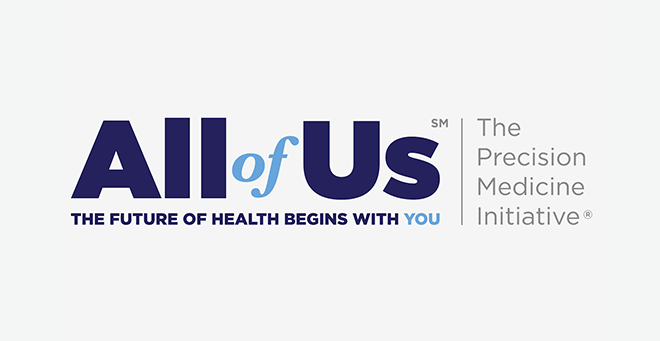Designed to accelerate medical advances and reduce health disparities by collecting detailed health information from at least 1 million people across the U.S., the database has generated fruitful research for researchers at the program’s partner, University of Massachusetts Chan Medical School. The All of Us research program received its second round of funding last fall.
“The All of Us data is powerful because it combines diverse genomic data with other data sources, including survey data, electronic health record data, Fitbit data, and social risk data,” said Ben S. Gerber, MD, MPH, professor of population and quantitative health sciences and medicine. “There aren’t many datasets out there where all of this is collected and linked.”
Long-term medical, environmental, lifestyle and genetic information gained from a large, diverse group of participants could support the development of precision medicines – treatments tailored to individual needs – and potentially increase opportunities for rare disease research, helping to reduce health disparities, organizers say.
The National Institutes of Health program launched locally in 2018 in collaboration with UMass Chan and its clinical partner, Reliant Medical Group.
To date, 779 institutions have signed up to use All of Us data, and 325 research papers incorporating the data have been published. At UMass Chan, Dr. Gerber leads a group of faculty, trainees and students each month who use the All of Us Workbench, a platform for analyzing health data.
A fundamental goal of the All of Us research program is to enroll people from populations that have historically been underrepresented in biomedical research, according to Mara Meyer Epstein, PhD, ScD, ScM, the site’s principal investigator and associate professor of medicine.
Participants come from different races, ethnicities, age groups, and regions of the country, as well as diverse gender identities, sexual orientations, socioeconomic statuses, educations, disabilities, and health conditions.
“One of our areas of focus over the first five years has been the inclusion of older adults, who have traditionally not been the focus of medical research and have been excluded from clinical trials,” said Dr. Epstein. Nearly one-third of local participants are 65 or older.
Comprehensive data including biomedical samples are available from more than 545,000 participants nationwide, including 5,716 in central Massachusetts. Of the national sample, 87 percent belong to at least one population underrepresented in biomedical research, and 45 percent belong to racial and ethnic minority groups.
Researchers at Massachusetts Institute of Technology are already using data from All of Us to contribute to improving biomedical knowledge.
Epstein is co-author of a study examining sociodemographic correlates of opioid use, abuse, and use disorders in the All of Us Research Program. According to the authors, this data will strengthen estimates of the prevalence of opioid use disorders in diverse populations, including groups that are underrepresented in national survey data.
Dr. Feifan Liu, an associate professor of population and quantitative health sciences and an expert in artificial intelligence, is also working with Gerber and colleagues at other institutions to mentor high school and undergraduate students through the All of Us program.
They are collaborating on a wide range of projects, including investigating issues such as disparities in acute care utilization among patients with diabetes, predicting risk of developing cardiovascular disease among patients with type 2 diabetes, analyzing the impact of insurance and drug use history on initiation of hepatitis C treatment, and predicting risk of breastfeeding problems in first-time births.
“Because it is nationally representative and demographically diverse, AI-based predictive modeling will be easier to assess for the generalizability of the system and the ethical aspects (e.g., AI fairness regarding health disparities), which are major concerns in the ‘AI for health’ community,” said Dr. Liu.
In Central Massachusetts, about 8,000 participants have enrolled and provided at least some input over the past five years, and program staff hope to enroll more than 10,000 people, according to Joann Wagner, senior research program manager in the School of Medicine’s Department of Health Systems Science. For more information or to register, visit https://www.joinallofus.org.
“This is just the tip of the iceberg,” Gerber said. “There’s so much going on.”


